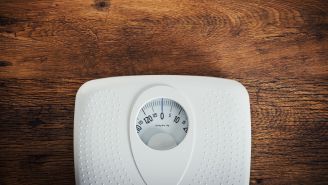Updated on June 26, 2023.
You may have heard the about the health benefits of eating less meat. People who follow plant-based diets low in processed foods and sugar tend to have a lower risk of heart disease, type 2 diabetes, high blood pressure, obesity, and certain cancers, such as breast, colorectal, and prostate cancer. While these people often have healthier lifestyles in other ways, as well—such as getting regular exercise and not smoking—research indicates diet plays a significant role in general health.
With that in mind, how will your mind and body react when you reduce the amount of meat you consume, or stop eating it completely, especially if you’ve been eating it your entire life? Here are some of the changes you might notice, like increased energy levels and a better mood.
At first, you may still feel hungry
For the first week or two of going meatless, psychologically, you’ll probably feel like you’re still hungry, says Nishant Kalra, MD, an interventional cardiologist in Troy, Ohio. “Even if you’ve consumed all the food components—protein, carbohydrates, and calories—you may feel unfulfilled,” Dr. Kalra explains. Why?
“If you’re accustomed to eating meat and a side of small vegetables at most meals, and you’re shifting yourself to mostly vegetables, you’ll probably feel like you haven’t eaten your main course,” says Kalra. Some vegan diets—which are completely free of animal products—may be lower in fat and protein, so the unsatisfied feeling may be related to that, too.
Kalra says this feeling may continue for a week or so, but your mind will get used to your new eating patterns in a few weeks. In the meantime, avocado, nuts, quinoa, lentils, and tofu are protein-packed vegetarian foods that will fill you up.
Your taste buds may change
Zinc, a mineral that assists in immune function and wound healing, can also affect your sense of taste and smell. Zinc is found in oysters, beef, and crab, so if you’re not eating meat or fish, you may not be getting as much zinc as you need. And some vegetarian foods, like legumes and whole grains, contain phytates, acids that may reduce the body’s absorption of zinc.
“Some people say that they lose their taste for meat after having gone without it, and that may be the case. Zinc is an important mineral that helps with taste buds and the sensitivity of the taste buds, and on a vegetarian diet you’re not getting as much of it,” says Kalra.
Vegans and vegetarians should be aware of daily zinc recommendations. Adult women should aim for 8 milligrams of zinc per day, while men should aim for 11 milligrams per day. If your foods don’t have enough, dietary supplements can help, too. Fortified cereals, yogurt, pumpkin seeds, peanuts, and oatmeal are some of the vegetarian-friendly foods that can help up your zinc intake.
Your gut will love you
The microorganisms that live in your body are called your microbiome. These organisms contribute to proper digestion, a healthy immune system, and healthy gut tissue. The dietary fiber in vegetables, fruits, and whole grains help your body maintain a healthy intestinal microbiome by contributing to the growth of “friendly” bacteria. That means a vegetarian diet may improve your digestive tract health, regulate bowel movements, and prevent constipation.
When you first start adding more plant-based foods to your diet, you may feel like you’re going to the bathroom more than usual. But if you’re going once a day, you’re actually becoming more regular.
You could increase your life expectancy
Eating less meat may even help you live longer.
This theory was put to the test when National Geographic magazine, longevity researchers, and best-selling author Dan Buettner joined together to gather lifestyle secrets from the world’s longest living communities, known as Blue Zones. What did they find?
The world’s healthiest communities tend to adopt diets that are plant-based and low in high-fat animal products. The people within these communities mostly eat plant-based foods like legumes, tofu, and leafy greens, and limit their meat consumption to five or fewer servings per month.
Research published in The American Journal of Clinical Nutrition in 2018 supports this. Scientists found that eating lots of plant-based foods full of monounsaturated fatty acids—like avocado and nuts—was linked to a reduced chance of dying from heart disease or other causes. Comparatively, diets rich in monounsaturated fatty acids from meat sources—like eggs, full-fat dairy, and red meat—were connected to a higher risk of the same.
To reach their conclusions, researchers analyzed data from more than 90,000 people over an average of 22 years, about 4,600 of whom died of heart disease. They also estimated that swapping out animal sources of monounsaturated fatty acids for plant sources could drop your odds of dying from heart disease—or any cause—by about 25 percent.
You may drop pounds
Simply reducing—or nixing meat from your diet completely—can help your weight loss efforts. Why? “Studies show that people who stick with a vegetarian diet consume less fatty food,” says Dr. Kalra.
A literature review published in Nutrients in 2022 showed that vegetarians following a well-balanced diet tended to have a lower body mass index (BMI) than those who ate meat. Most studies included in the literature review showed a positive relationship between a plant-based diet and body composition/fat distribution. In general, meat eaters consume less plant protein, beta carotene, fiber, and magnesium, and more fatty acids known to contribute to heart disease. On the other hand, vegetarians typically consume more fiber, potassium, and vitamin C.
While these findings indicate a link between a vegetarian lifestyle and a lower body weight, further studies need to examine other lifestyle factors such as exercise and how that plays into the equation. Additionally, while BMI is frequently used as a tool in health screenings, it’s imperfect and doesn’t account for factors such as race, sex, age, and physical build; it also doesn’t detect individual health issues.
It’s important that you start small
If you make drastic changes all at once, it’s going to be difficult to maintain. Instead, make incremental changes to your diet, adding more plant-based foods over time.
“I tell my patients to start by doing away with red meat first. It’s okay to indulge once a month or so, but I like to see them concentrate on lean meats like chicken, turkey, and deer meat,” says Kalra. After that, he recommends they gradually stop eating lean meats, too. “I especially recommend a meat-free diet to those who have peripheral vascular diseases, blockages in the arteries, stroke, high blood pressure, and diabetes,” says Kalra.







